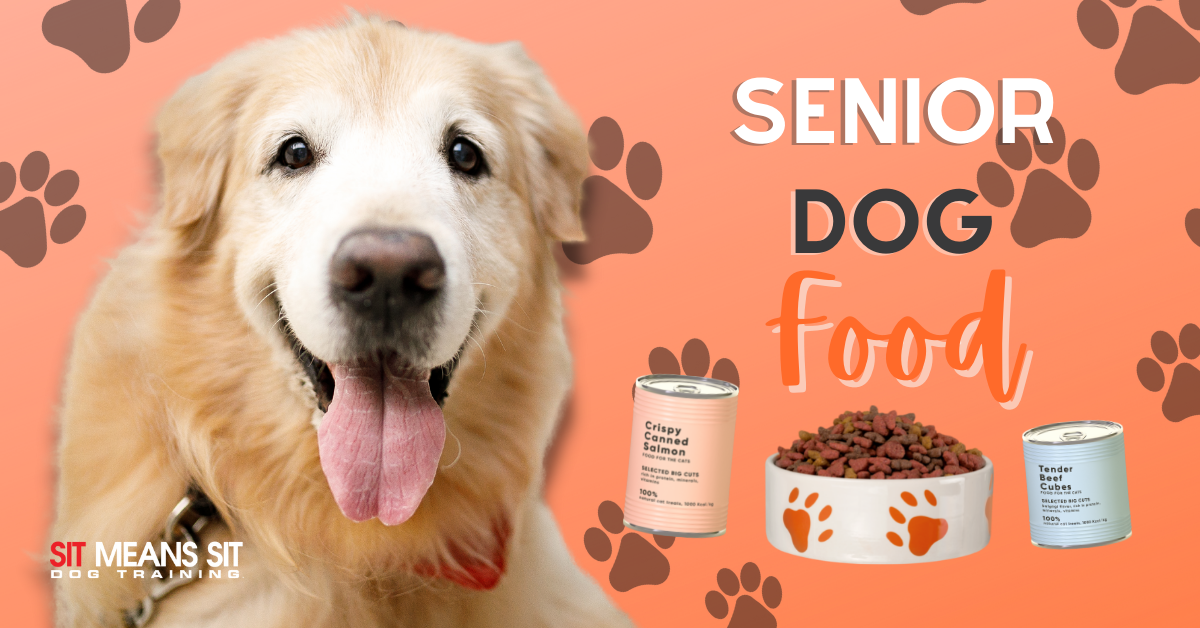
What Should I Be Feeding My Senior Dog?
As our dogs get older, we want their care to be just as attentive as to when they were puppies. So, you might be thinking to yourself, “when should I switch my pooch to senior dog food?” This may be hard to decide because every furry friend is different and requires their own unique feeding plan. Especially since dogs age at various stages due to their breed and life circumstances, switching can be difficult to figure out.
Aging
Many dogs become “senior” from ages 7-12, depending on their breed. Larger dogs age faster while smaller dogs tend to age later on. There aren’t clear guidelines on what exactly your senior dog should be eating according to the food industry’s practices. There isn’t a definition of what senior dogs exactly need, which means you should ask your veterinarian if there are any particular supplements or dietary restrictions you should abide by for your senior pup. As foods vary depending on a brand’s definition of what a senior dog should be eating, you may not need to even change your dog’s meal plan if their regular eats are benefiting them just fine.
What Food?
In most situations, you won’t need to switch up your dog’s food. But, if they develop kidney or liver problems, your canine companion may require a low protein diet. Having your vet do a blood work test at least once a year will help aid in deciding what your senior pooch needs. Veterinarians also advise feeding your dogs high-quality foods with healthy, fulfilling ingredients. Consult your vet about their food recommendations!
Feeding a Healthy Dog
- Senior doggies can especially benefit from eating pet-friendly fruits and vegetables occasionally. Senior pups are more prone to constipation so foods with high fiber like plain canned pumpkin or steamed fresh green beans can be a great add-in to their diets.
- Supplements are a good way to get in some much-needed nutrients in your senior dog’s life. Check with your vet about what supplements or nutrients your dog may be lacking!
How Much Food?
It’s not uncommon for dogs to gain weight as they enter senior age due to being less active than they were as adults. This means you need to be more cautious about the amount of food being given out (including treats and table scraps) and may need to find a food that is lower in calories.
It’s more of a rarity, but some dogs are the opposite and lose weight or an appetite with age. Losing weight can sometimes be a sign of poor health or a condition, so be sure to get your dog checked regularly at the vet and bring them in if you suspect sickness. This loss of appetite may even be caused by dental problems as senior dogs are more prone to issues with their teeth. Try small kibble or soft, canned food if your dog has trouble eating due to their teeth.
When to Feed?
Dogs love their routines, no matter what age. Keep your dog’s feeding routine consistent with what they know even if their actual diet changes as they grow older. Senior dogs especially appreciate having a schedule!
Senior dogs are just as important and adorable as puppies and adult pooches. Feeding them may seem like a challenge, but if you stick to the basics and consult your vet when needed, all should be well!
